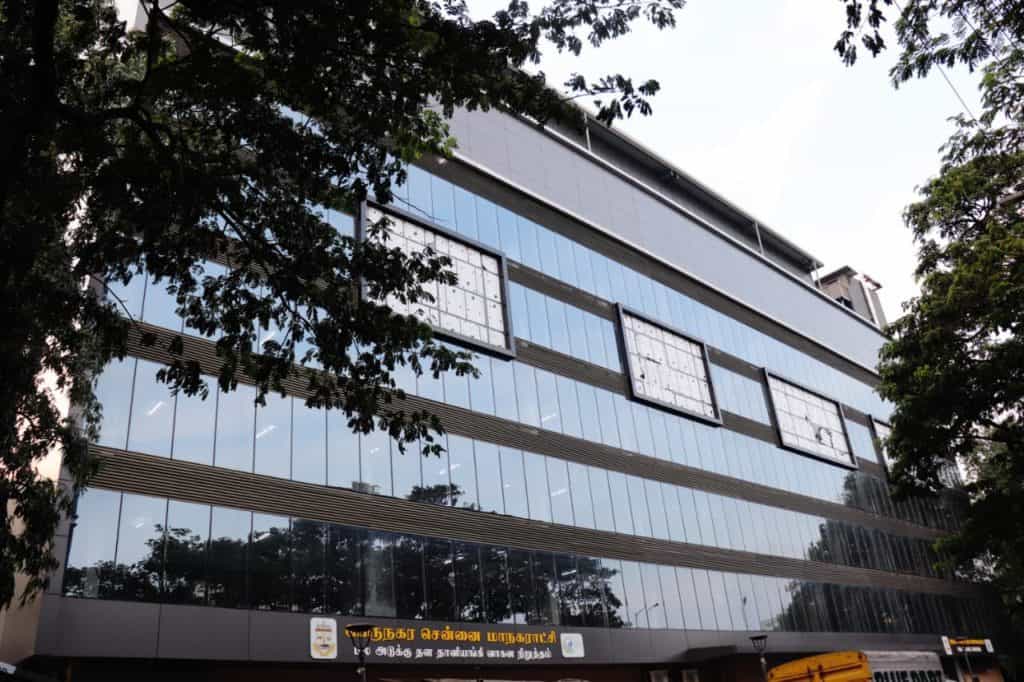The Institute of Transportation and Development Policy (ITDP) is working with the Greater Chennai Corporation to finalize the city’s new parking management policy. The ITDP said that the goals of the new framework included reducing the demand for parking and reclaiming on-street parking spots for sustainable modes of transport – the expectation is that the new policy will minimize traffic congestion, air pollution and accidents.
“In many Indian cities, the phenomenal growth in ownership of private motor vehicles, combined with dwindling investments in public transport, has resulted in streets choked with traffic. Haphazard parking takes up significant real estate on-street and it is fairly common to see parked vehicles occupying the footpaths as well,” pointed out Santhosh Loganaathan, Senior Associate – Urban Development at ITDP.
Chennai’s ballooning vehicle count
The available data does illustrate a grim picture that the number of private vehicles in the state has doubled over the past decade; Chennai’s roads alone are struggling to support nearly 60 lakh vehicles. It’s no longer possible – or fair – to take public parking for granted.
The top priority of the new parking management policy will be to create a local area plan that lays out the parking system for each neighbourhood. “This will help the city determine which streets should carry paid and free parking, the parking times, no parking segments, parking lots location, etc.,” he explained. “Parking slots in each street should be clearly delineated with legible signage so that enforcement can be effective,” he added.
Challenge of parking plan enforcement
Enforcement of a plan to regulate Chennai parking will be a key challenge in making the project a success; traffic police will likely play a big role in chalking out a clear strategy in this regard. Meanwhile, some citizens are also taking the initiative to reduce the parking burden on public real-estate.
Read more: Street parking to be charged soon in city: Raj Cherubal, CEO, CSCL
Many residential complexes provide visitors with stack-parking facilities, which allow cars to be parked on top of one another much like a multi-level car park. The initiative reportedly has the blessing of the Chennai Metropolitan Development Authority, which believes that it will ease the stress on on-street parking.
Multi-level parking underutilised
When it comes to the city’s multi-level car parks (MLCPs) such as the one at T-Nagar, Santhosh feels that they need to be planned in conjunction with the larger strategy to improve occupancy rates and deliver the best value.
“In T-Nagar’s case, the MLCP charges the same fee as on-street parking in the vicinity – Rs. 20 per hour. On-street parking is yet to be effectively enforced in the adjacent streets. So, users prefer parking on the streets as it is more convenient than having to park in an MLCP and then walking to their desired destination,” he pointed out. “The on-street fee should be considerably higher – at least by a factor of two – to nudge citizens to use the MLCP facilities.”
Priority for shared transport
The new parking management policy will give priority to auto-rickshaws and taxis over personal vehicles for on-street parking, encouraging the establishment of convenient pick-up and drop-off points for citizens using ride-share facilities. The hope is that this will encourage the use of public transport over personal vehicles.
Read more: Ignorance, corruption or lax policing: What ails PUC checks of Chennai’s 54 lakh vehicles?
“This will indirectly result in a lesser number of private cars on our streets, helping lower congestion,” said Santhosh. This doesn’t mean that personal vehicles will be left unserved – parking on residential streets or side streets where the demand is not high will remain free of charge, albeit managed closely to ensure that haphazard parking does not obstruct vehicle or pedestrian movement.
Reclaiming the streets
Perhaps one of the most ambitious goals of the new policy is the reclamation of on-street parking spaces to give way to better public transport infrastructure. Speaking on the potential of solving last-mile connectivity issues of commuters, Santhosh outlined the plan’s vision of creating a network of well-connected footpaths.
“In any city, the street is a highly contested public space,” he pointed out. “Public transport users largely rely on walking to reach the transit stops or their destination from the transit stops. A well-connected network of footpaths connecting every neighbourhood to the nearest transit stations would improve the safety and comfort of transit users. Additionally, in certain streets, the reclaimed space could also be used to implement cycle tracks or bus-priority lanes depending on the context,” he finished. The new parking management policy is expected to be finalised soon.
[This story was first published on Madras Musings. It has been republished with permission. The original article can be found here.]
Also read
